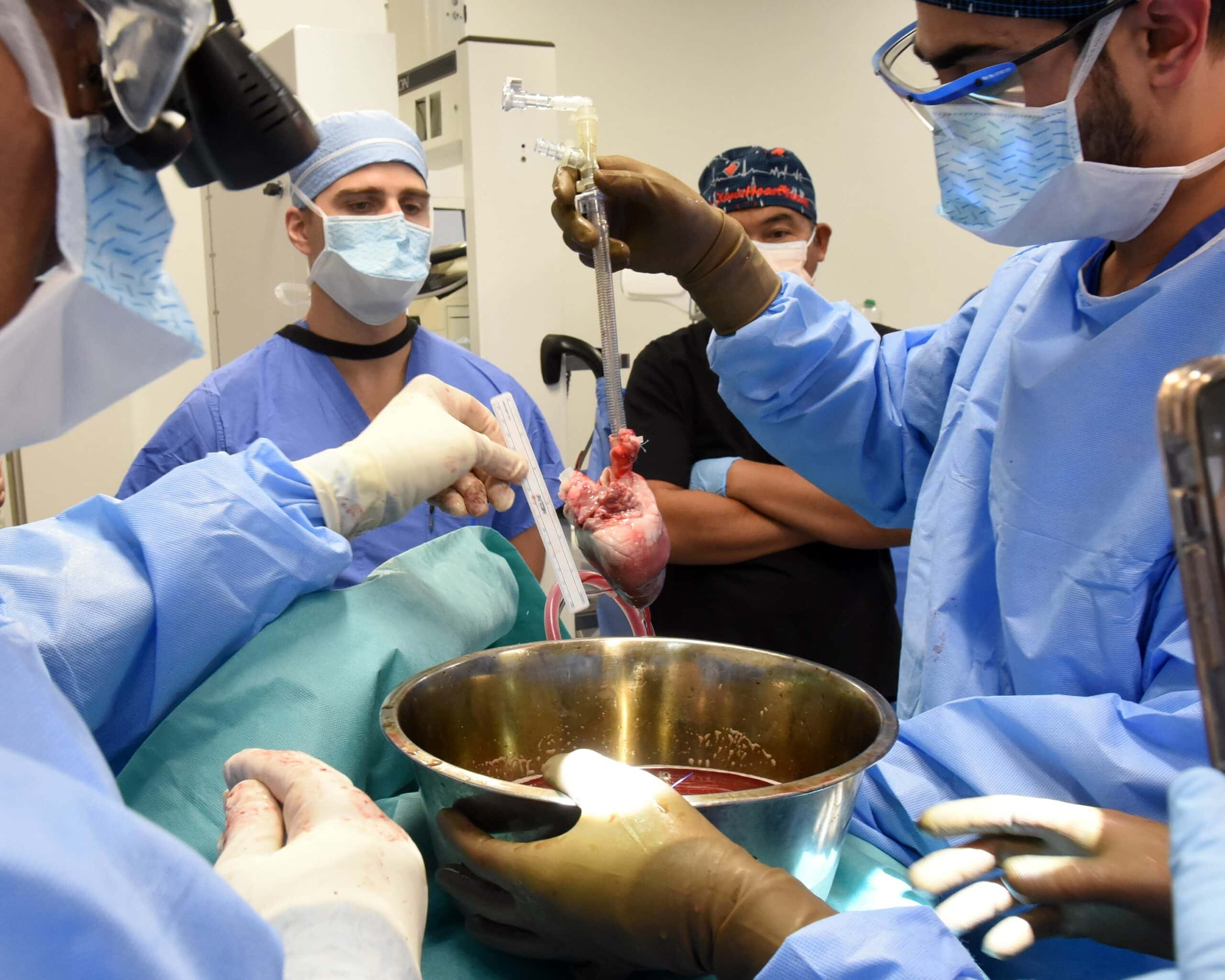This groundbreaking surgery, performed by Dr. Bartley Griffith of the University of Maryland School of Medicine, marked only the second time this procedure has been attempted on a human.

Lawrence Faucette, a 58-year-old patient with end-stage heart disease, has successfully undergone an innovative procedure involving a genetically modified pig heart transplant
Dr. Muhammad Mohiuddin, director of UMMC’s Cardiac Xenotransplantation Program, reported that Lawrence Faucette’s transplanted heart is now autonomously functioning, displaying no signs of rejection. Remarkably, Lawrence Faucette’s pre-existing conditions rendered him unsuitable for a conventional human heart transplant.
Physiotherapists are now focused on assisting Lawrence Faucette in regaining his physical strength. Although he isn’t yet standing unaided, he can get out of bed with minimal support, representing a crucial turning point in his recovery.
Lawrence Faucette, a married father of two and a Navy veteran from Frederick, Maryland, expressed gratitude for the positive outcome. He emphasized the normalcy of his newly modified heart in scans, echoing the doctors’ sentiments.
This pioneering xenotransplant, authorized under the FDA’s “compassionate use” program, utilized a genetically modified pig heart from Revivcor, a subsidiary of the United Therapeutics Corporation
Ten genes were modified, with three being deactivated to eliminate alpha gal sugar, a potential trigger for organ rejection. An additional pig gene was adjusted to regulate heart growth, while six human genes were introduced to enhance immune system compatibility. Lawrence Faucette received an experimental antibody treatment to further suppress his immune system, minimizing the risk of rejection. Ongoing monitoring ensures early detection of any signs of rejection or pig-related viruses.
While the first surgery in 2022 was initially promising, the patient, David Bennett, succumbed to heart failure due to multiple factors. A post-mortem revealed the presence of an unidentified pig virus, prompting ongoing vigilance in this pioneering field of transplantation.
With over 113,000 individuals awaiting organ transplants, including 3,300 in need of a heart, this breakthrough offers hope for those on the waiting list, addressing the critical shortage of donor organs.
READ ALSO: Historically Black Colleges And Universities (HBCUs) Lead Groundbreaking Genetic Database Initiative




